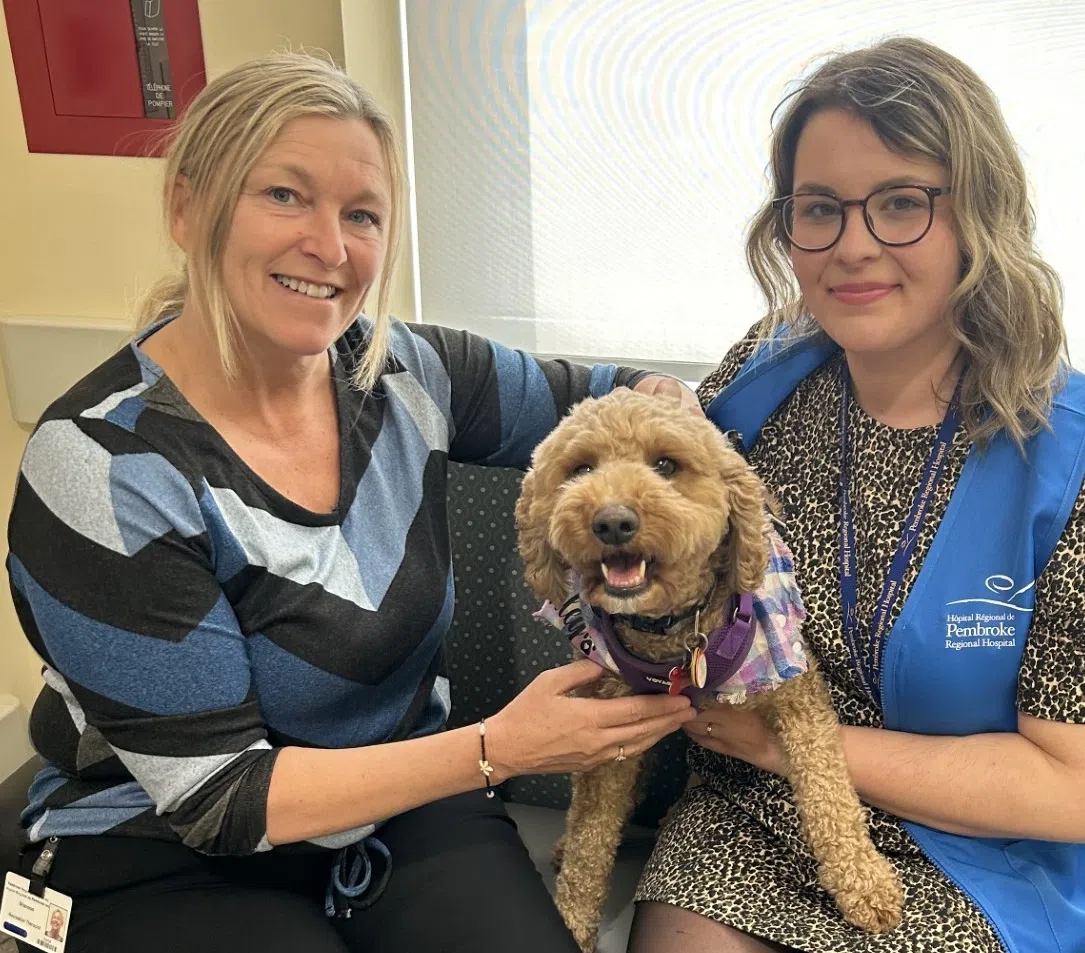
Shannon is accompanied by Marley and Marie Josee Lessard, one of the hospital's Pet Therapy volunteers
Patients on the Acute Mental Health unit at Pembroke Regional Hospital (PRH) engage in various therapeutic leisure activities as part of their mental health recovery journey. From arts and crafts to pet therapy, board games, and outdoor exercises, these activities play a crucial role in supporting patients’ well-being and healing.
Recreation Therapist Shannon Reckzin explains that recreation therapy isn’t just about passing the time; it’s an essential part of mental health treatment. “Recreation supports recovery, improves mental health, and enhances an individual’s quality of life,” said Reckzin. Activities offered on the unit range from group-based options like bingo, trivia, and bean bag toss to self-directed ones such as journaling, knitting, adult coloring, and crossword puzzles.
The goal of these activities is to help patients build skills, connect with others, and improve emotional health. “We challenge patients to connect with others through the activities they do. It’s incredibly rewarding to see them proud of their accomplishments,” said Reckzin. “We encourage them to try new things in small increments and recognize the changes they can make in themselves.”
Patients are also encouraged to use their time in the hospital to plan for life after recovery. By considering activities to maintain balance—such as joining a gym, volunteering, or taking up art—patients prepare for a smoother transition back to their daily routines.
One patient shared, “Recreation played a key role in helping me conquer my anxiety and depression. The activities helped slow my racing thoughts, and I was able to enjoy time with others.” Another patient said, “The Recreation Therapist was so kind and easy to talk to. With her encouragement, I was able to attend and stay in a group session, which helped reduce my stress.”
Bailey Lance-Provencal, Clinical Manager of the Acute Mental Health unit, emphasizes the importance of recreation therapy in holistic recovery. It supports patients in rediscovering enjoyable activities, developing coping strategies, and rebuilding routines. “Recreation therapy not only maintains well-being but also enhances emotional and psychosocial health,” said Lance-Provencal.
The benefits of recreation therapy are far-reaching. It reduces anxiety, boosts emotional well-being, builds confidence, and promotes better sleep. It also encourages participation in meaningful activities and helps individuals integrate into the community.
Reckzin also highlights the importance of leisure time for everyone. “Taking time for relaxation and recreation is vital to managing stress and balancing work life,” she said. “Through these activities, patients can see that joy and fulfillment are possible, even in tough times.”
In the words of one patient, “Recreation therapy has played a pivotal role in my recovery journey. It helps me deal with stress and refocus on something positive, like art or games, to get through the tough moments.”
At Pembroke Regional Hospital, recreation therapy is a key element in supporting mental health recovery and empowering patients on their path to healing.